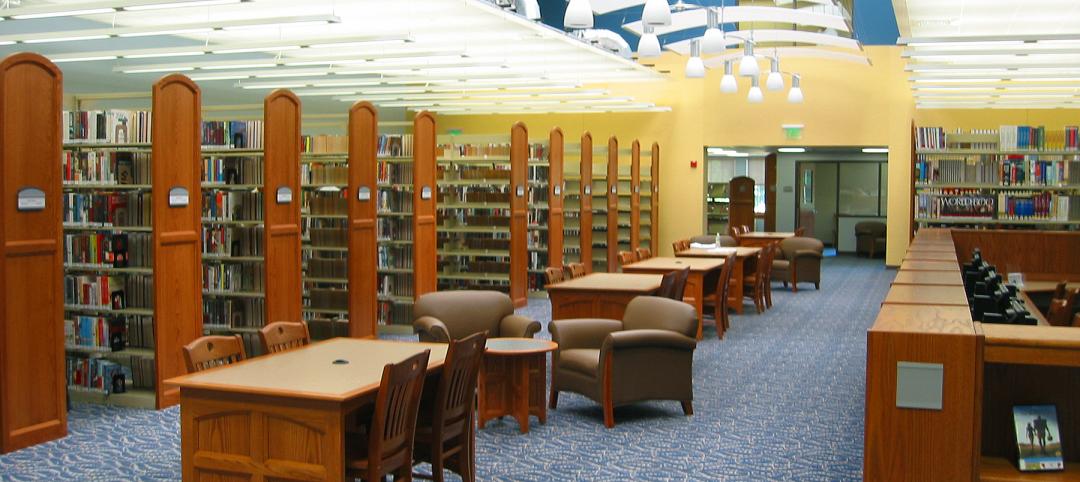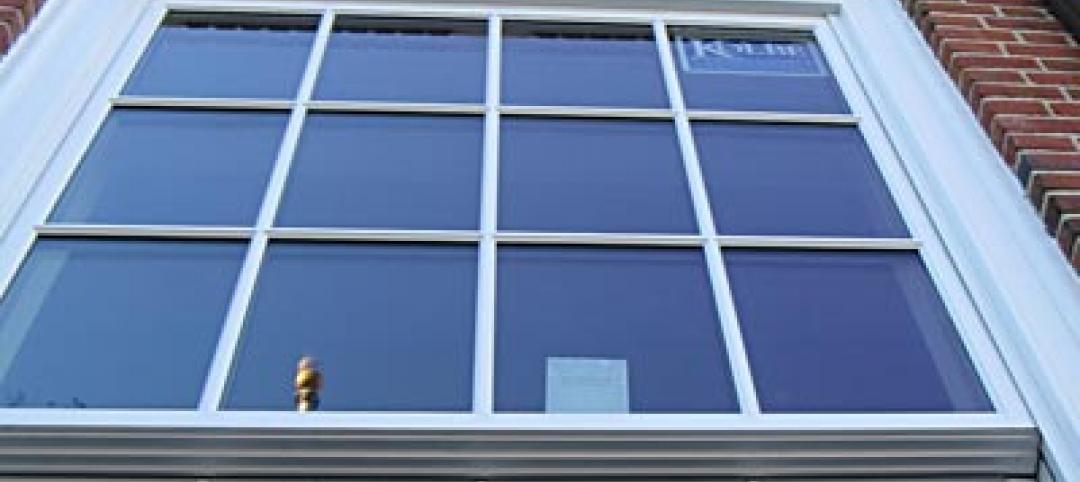The jury for the American Institute of Architects (AIA) Upjohn Research Initiative, a grant program that supports applied research that advances design and professional practice, has announced the five projects selected to receive grants.
The purpose of this grant, now in its 10th year, is to provide base funds for applied research projects that advance professional knowledge and practice. The 18-month long project grant qualifies recipients to have their findings and outcomes published both electronically and in a nationally distributed publication. The total award of $100,000 will be spread across the selected proposals. The jury, comprised of members of the AIA College of Fellows and Board Knowledge Committee, felt the process and deliberations were fully consistent with the double blind-peer review intent of the program. This double blind-peer review helps add an element of rigor to the process whereby proposals are debated on their own merits. The following five submissions were selected for funding:
A Circadian Daylight Metric and Design Assist Tool for Improved Occupant Health and Well-Being
Principal Investigator: Kyle Konis, AIA, Ph.D. (University of Southern California)
All zones within a building that do not regularly achieve the lighting conditions necessary for effective circadian stimulus can be labeled as biologically dark and considered as zones where regular occupancy may be problematic for health and well-being. The objective of this research is to develop a daylighting Metric and Design Assist Tool capable of assessing the circadian potential of architectural space. Procedures using annual, climate-based daylight analysis of eye-level light exposures will be developed to map the circadian effectiveness of a given space. The Design Assist Tool can be used to assess and differentiate the performance of various daylighting strategies during the design phases of a project or to quantify the circadian effectiveness of existing spaces.
Post Natural Material Assemblies
Principal Investigators: Meredith L. Miller (University of Michigan), Thomas Moran (University of Michigan)
Plastiglomerates, formed from the waste polymers of post-consumer plastic fusing with sand, rock, and other inorganic materials, suggest a new approach to sustainable building materials. This proposal builds on collaborative work of the research team to investigate the architectural potential of plastiglomerates with the intent to build a full-scale architectural assembly made from thermocast units. By combining the inherent properties of synthetic plastics and stone, these post natural “masonry” units can be inexpensive, durable, insulating, and locally sourced. The proposed project aims to enhance the plastic-waste-to-building-elem
Smart Cities: Population Health and the Evolution of Housing
Principal Investigator: Joe Colistra, AIA (University of Kansas)
This project will develop a multifamily housing prototype that demonstrates best practices in aging-in-place strategies and tele-health technology. It will investigate prefabricated construction techniques that can be used to bring population health strategies to the affordable housing market. The research team will work with construction industry partners as well as health professionals to test various sensor-enabled assemblies. Some of the more advanced technologies will include motion sensors/fall detection, gait analysis, automated LED smart-spectrum lighting, smart mirrors, smart toilets, sleep sensors, and automated medicine dispensers.
SMART Tiles: Novel Application of Shape Memory Polymers for Adaptive Building Envelopes
Principal Investigator: Dale Clifford (California State Polytechnic University)
Collaborators: Kelle Brooks (California State Polytechnic University), John Brigham, Ph.D. (Durham University), Richard Beblo, Ph.D. (University of Dayton Research Institute)
This project addresses the challenges of designing adaptive façade systems with ‘dynamic’ or ‘smart’ materials. The team will design latitude-specific self-shading building tiles that apply the attributes of a class of polymers with shape memory characteristics. The SMART Tiles are intended to wrinkle and reposition themselves in response to incoming solar radiation to deliver self-shading and energy harvesting performance. Stepping into the emergent field of building self-regulation with programmable matter, this project joins the shift towards a built environment that passively adapts to subtle environmental fluctuations of temperature, light, humidity, and pressure via material properties. Equally important to the team is that the dynamic aspects of the SMART Tiles appeal to the imagination and viscerally (re)connect a building occupant to the environment.
TrashWalls
Principal Investigators: Taiji Miyasaka (Washington State University), Robert Richards (Washington State University), Vikram Yadama (Washington State University)
Collaborators: Rex Hohlbein (Facing Homelessness; Rex Hohlbein Architects), David Drake (Washington State University)
TrashWalls, fabricated using materials harvested from the local solid waste stream, are designed to reduce heat loss from rented apartments, improve the comfort of those spaces during hot or cold weather, and save renters money on their utility bills, while reducing pollution. The purpose of this project is to design, construct, and examine prototypes of interior insulating walls that are attractive, have an R-value of R-10 (US) or greater, cost less than ten cents per square foot, are built from recycled waste materials, are easily manufactured, fire safe, and can accommodate windows. The research team, a collaboration between architecture and engineering, seeks applications of TrashWalls to backyard transitional homes for people who are homeless in Seattle. Testing will occur in a lab setting and at an urban site.
You can see learn more about previous Upjohn Research Initiative projects here.
Related Stories
| Nov 10, 2011
Thornton Tomasetti’s Joseph and Choi to co-chair the Council on Tall Buildings and Urban Habitat’s Outrigger Design Working Group
Design guide will describe in detail the application of outriggers within the lateral load resisting systems of tall buildings, effects on building behavior and recommendations for design.
| Nov 9, 2011
Lincoln Center Pavilion wins national architecture and engineering award
The project team members include owner Lincoln Center for the Performing Arts, New York; design architect and interior designer of the restaurant, Diller Scofidio + Renfro, New York; executive architect, FXFOWLE, New York; and architect and interior designer of the film center, Rockwell Group, New York; structural engineer Arup (AISC Member), New York; and general contractor Turner Construction Company (AISC Member), New York.
| Oct 27, 2011
ASSA Abloy, MAXXESS Systems announce U.S. Aperio integration
Aperio will integrate with MAXXESS's eAXxess and Efusion Event Management Software packages.
| Oct 25, 2011
Ritner Steel CEO elected to AISC Board
Freund will begin serving on the AISC board of directors, assisting with the organization's planning and leadership in the steel construction industry.
| Oct 25, 2011
Commitment to green building practices pays off
The study, conducted by the Pacific Northwest National Laboratory, built on a good indication of the potential for increased productivity and performance pilot research completed two years ago, with similarly impressive results.
| Oct 24, 2011
BBS Architects & Engineers receives 2011 Sustainable Design Award from AIA Long Island Chapter
AIA LI also recognized BBS with the 2011 ARCHI Award Commendation for the St. Charles Resurrection Cemetery St. Charles Resurrection Cemetery Welcoming and Information Center in Farmingdale, NY.
| Oct 24, 2011
Kolbe adds 3-D models of direct set windows to BIM library?
Beveled Direct Set SketchUp and Revit Models available.
| Oct 20, 2011
Johnson Controls appoints Wojciechowski to lead real estate and facilities management business for Global Technology sector
Wojciechowski will be responsible for leading the continued growth of the technology vertical market, while building on the expertise the company has developed serving multinational technology companies.
| Oct 18, 2011
Dow Building Solutions invests in two research facilities to deliver data to building and construction industry
State-of-the-art monitoring system allows researchers to collect, analyze and process the performance of wall systems.
| Oct 18, 2011
Architectural leaders join Gehry to form strategic alliance
Alliance dedicated to transforming the building industry through technology.
















